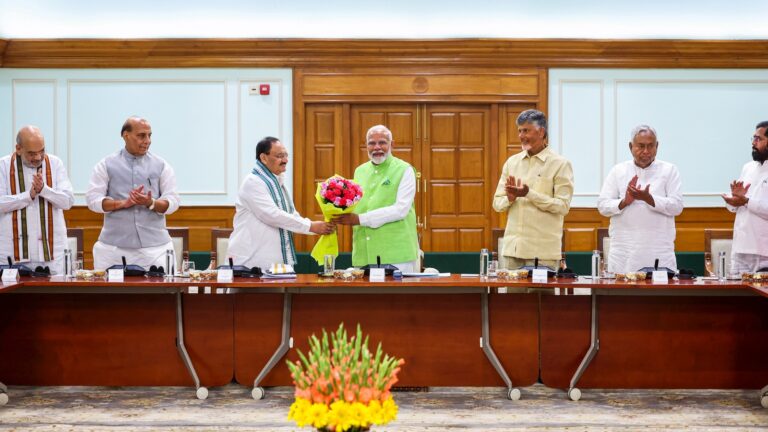Why are the TDP and JD(U) pushing for the Speaker post as an insurance policy?
The TDP and JD(U), two key parties in the NDA’s three consecutive terms at the Centre, have decided to stake their claim for the post of Speaker of the Lower House. According to sources, both parties have already suggested to the BJP leadership that the Speaker’s post should be offered to its alliance partner. In the late 1990s, when Atal Bihari Vajpayee led the coalition government, TDP’s GMC Balayogi served as Speaker.
According to sources, this measure is to “protect” the allies from possible future splits. The role of the Speaker is crucial in the Anti-Defection Act, as the timing and content of the final decision rests with the Speaker. Read more
Deciphering the ruling
How will the third Narendra Modi government be different from the previous two governments that came to power in 2014 and 2019? The answer lies in the composition of the 18th Indian Parliament. Read on to understand the implications of the verdict.
What was the argument behind the ruling?
If there is one word to sum up the outcome of the 2024 elections, it is the Hindi word “ankush” (restraint). Indian voters have given the BJP a mandate to run for a third term, but they have also restrained it.
The BJP leadership will now have to lead the government as head of a coalition government, bring in allies and show more consideration to its own neglected leaders. The BJP may still ignore the concerns raised by the Opposition but will know that with its vote tally down by over 60, it cannot get away with it.
In democracy, calculations shape chemistry. Prime Minister Narendra Modi knows it. Since he first contested elections in 2001, he has never been in a camp that was not in the majority. But here we are. The impact has rippled on the campaign streets. Read Neerja Chowdhury’s analysis of the ruling:

